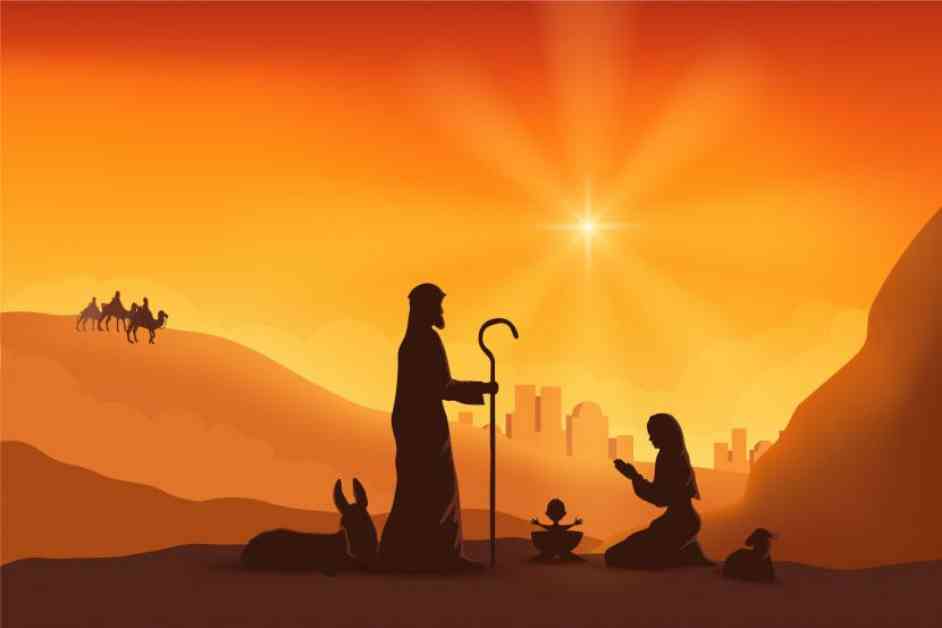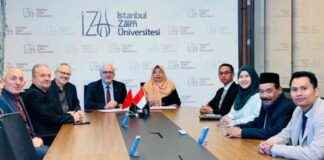Prophet Ibrahim’s Father: An Idol Worshipper?
Prophet Ibrahim, known as Abraham in English, is a revered figure in various religions, including Islam, Christianity, and Judaism. His story of faith, sacrifice, and devotion to God is a cornerstone of religious teachings. However, a recent discussion has emerged regarding the identity of Prophet Ibrahim’s father and whether he was truly an idol worshipper.
The Quran, the holy book of Islam, mentions Prophet Ibrahim’s prayer to God in Surah asy-Syu’ara, verse 86. In this supplication, Prophet Ibrahim asks for his father’s forgiveness from God to no longer be classified among the misguided individuals. The name of the person mentioned in this prayer is Azar. Unlike Prophet Ibrahim, Azar was deeply immersed in idolatry.
The Quranic verse reads, “And (remember) when Ibrahim said to his father Azar, ‘Do you take idols as gods? Indeed, I see you and your people in manifest error'” (Quran, Surah al-An’am: 74). This conversation sheds light on the relationship between Prophet Ibrahim and his father, Azar, portraying a significant theological and moral dilemma.
Another instance in the Quran, Surah asy-Syu’ara, verse 86, presents Prophet Ibrahim praying for his father, asking God for forgiveness as his father was among the misguided individuals. The Arabic term “liabiyy” used in this verse, meaning “my father,” does not necessarily refer to one’s biological father but can also denote a guardian or caretaker. Therefore, the role of “father” in this context could be filled by a grandfather, uncle, or another relative.
Expert Insights: Unraveling the Mystery
According to Sheikh Yasin Muhammad Yahya in Min Wahyil Qur’an, the father of Prophet Ibrahim mentioned in Surah asy-Syu’ara is not his biological father but potentially his uncle or a male relative from his father’s side. This interpretation offers a new perspective on the familial dynamics within Prophet Ibrahim’s lineage.
Furthermore, the Quranic usage of the term “abun” in Surah al-Baqarah, verse 133, refers to a paternal uncle rather than a biological father. This linguistic analysis provides a nuanced understanding of familial relationships and religious heritage within the Quranic narrative.
Interpretation and Reflection
As we delve into the intricacies of Prophet Ibrahim’s familial relationships and the spiritual significance of his prayers, we are reminded of the complexity of human connections and divine interventions. The Quranic verses offer a profound insight into the challenges faced by prophets and their interactions with their relatives, highlighting the timeless themes of faith, devotion, and forgiveness.
In our own lives, we may encounter similar dilemmas where familial ties intersect with religious beliefs, prompting us to reflect on the values that guide our actions and decisions. Through the story of Prophet Ibrahim and his father, we are encouraged to seek forgiveness, show compassion, and strive for spiritual enlightenment, transcending the boundaries of earthly relationships.
Let us ponder upon the lessons embedded within these sacred texts, drawing inspiration from the unwavering faith of Prophet Ibrahim and the transformative power of prayer. May we navigate our own journeys with grace and humility, embracing the divine wisdom that illuminates our paths towards redemption and enlightenment.














